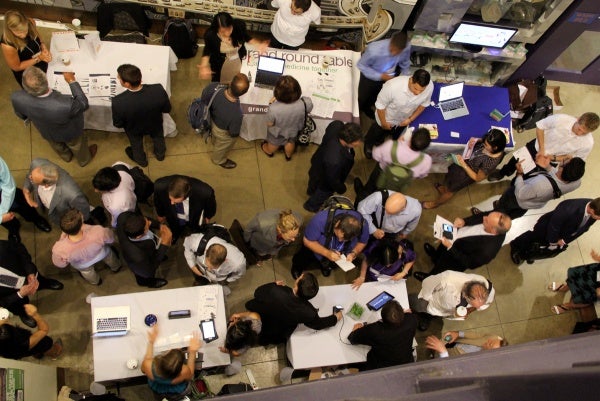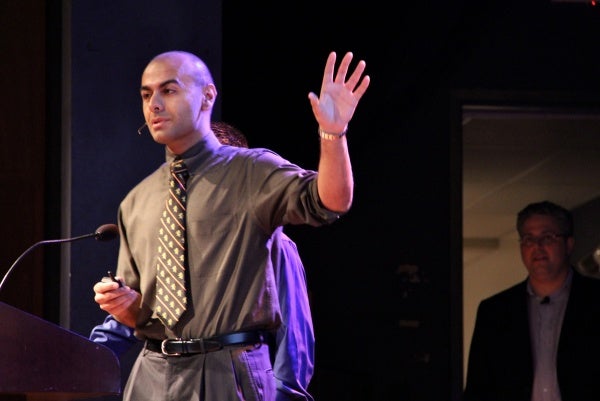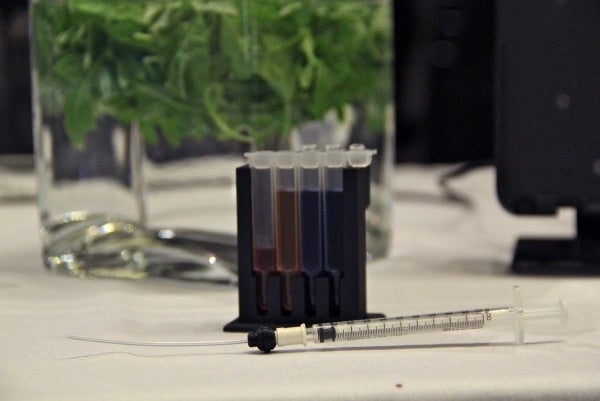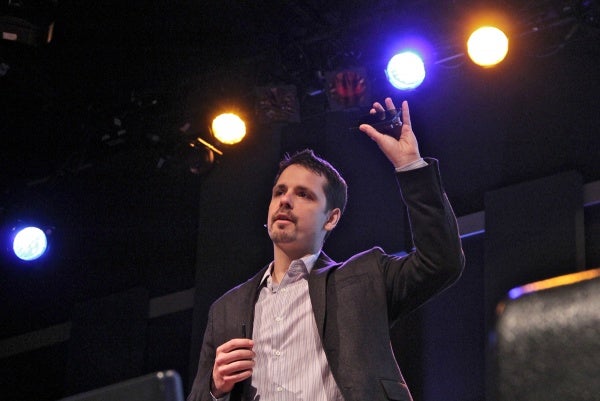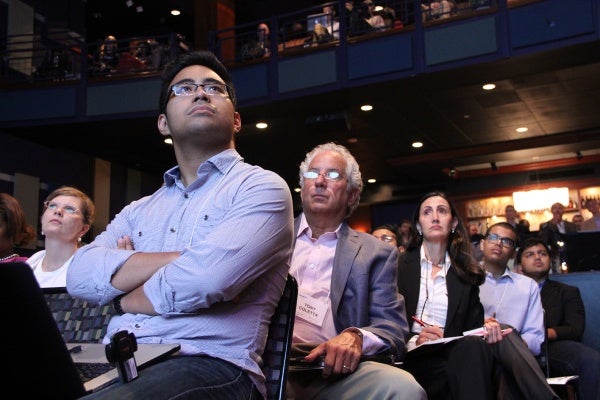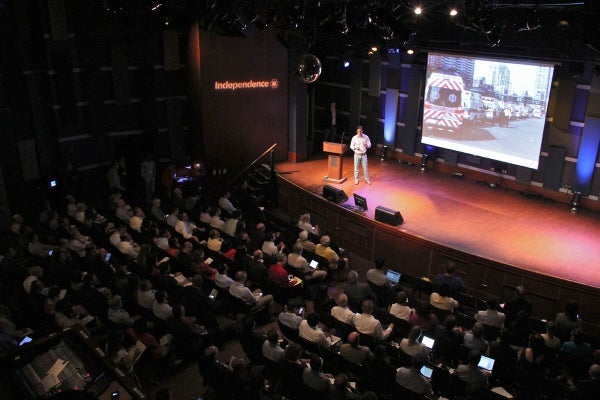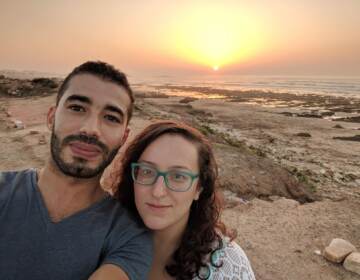Investors angle for ‘next big thing’ at DreamIt Health demo day
ListenTen startups, four months of mentorship and seven minutes to make their case.
Those were the numbers behind demo day at DreamIt Health—the region’s first-ever accelerator program for new companies trying to improve the health care system via personal technology.
Novel ideas
It was a standing-room-only crowd of 300-plus at WXPN’s World Cafe Live in University City. About half of those in attendance came with checkbooks in tow, mostly East Coast investors watching the stage in hopes of spotting the next big thing.
There was stat, a smartphone app for hailing nearby ambulance; Lucidity, a system for bringing price transparency into the doctor’s office; and Biomeme, a device that turns your iPhone into a diagnostics lab.
“You can think of this as a photocopy machine for DNA,” said Max Perelman, Biomeme co-founder, onstage with a wireless microphone headset and a fine-tuned PowerPoint, making the case for why his company matters.
“For example, if I want to look for a specific pathogen—E. coli on a leaf of spinach or HIV in blood—even if there was just one strand of DNA or RNA in that sample,” Perelman said, “our machine would be able to copy it up to the point that the smartphone would be able to detect its signature and make a diagnosis.”
After 16 weeks of boot camp, it was graduation day for Biomeme and its DreamIt counterparts. They were ready to leave the nest.
Budding sector
The 10 startups that presented Wednesday were DreamIt Ventures’ first-ever class of companies focused exclusively on the health IT space.
The 5-year-old accelerator program started in Philadelphia and has since expanded to other cities. DreamIt Health helps launch seed-stage companies via mentorship, stipends and access—in exchange for an 8 percent equity stake in each company.
Elliot Menschik, who runs the health IT wing of DreamIt Ventures, said the big-picture goal is turning Philadelphia into a destination for health IT innovation.
“You have world-class providers, you have market-leading payers, global biopharmaceutical companies and industry titans who all call this home,” Menschik said of the Philadelphia region. “And growing up around them are the next generation of upstarts.”
DreamIt Health is partnered with health system Penn Medicine and insurer Independence Blue Cross.
IBC CEO Dan Hilferty put the lofty goal for the Philadelphia area this way: “Why can’t we be the Silicon Valley of health care innovation?”
The 10 startups that pitched their wares Wednesday were looking to do their part. Six had relocated temporarily from other areas of the U.S., while four are homegrown.
Their pitches were targeted to the investors in the room, laying out how their early stage companies can capture market share in a sector where health care reform is creating new opportunities.
An investor’s take
After two hours of presentations, entrepreneurs and investors mingled over business cards.
“For the right company, yes, I do have my checkbook,” said Percy Nikora, a partner at the Philadelphia-based Robin Hood Ventures. “Although it’s unlikely that I’m going to write a check today, the goal is really to engage [these startups], have a deeper dive, have some due diligence around that company.
“There’s certainly three or four companies that are on the list,” Nikora said.
DreamIt Health organizers hope to add to the list of health care accomplishments born in the Delaware Valley. Health IT is a hot field and they and others are hoping their investments pay off.
—
WHYY is your source for fact-based, in-depth journalism and information. As a nonprofit organization, we rely on financial support from readers like you. Please give today.


